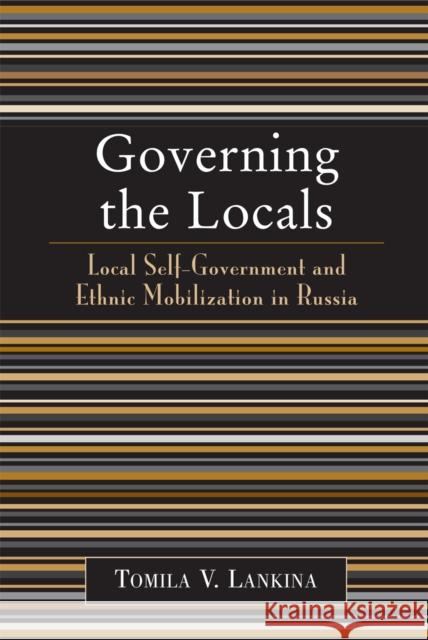Governing the Locals: Local Self-Government and Ethnic Mobilization in Russia » książka
Governing the Locals: Local Self-Government and Ethnic Mobilization in Russia
ISBN-13: 9780742530225 / Angielski / Miękka / 2006 / 232 str.
Governing the Locals: Local Self-Government and Ethnic Mobilization in Russia
ISBN-13: 9780742530225 / Angielski / Miękka / 2006 / 232 str.
(netto: 177,25 VAT: 5%)
Najniższa cena z 30 dni: 183,84
ok. 30 dni roboczych.
Darmowa dostawa!
Governing the Locals demonstrates that with the exception of a brief period in 1990-92 when the local soviets fostered mass mobilization, local governments in post-Soviet Russia have actively constrained grass-roots activism. Rather than serving as instruments of the "schooling in civil society," or of "making democracy work"--as the conventional wisdom holds--local governments have been used by the regional authoritarian or ethnocratic regimes as instruments of top down social control. The author suggests that this tendency has been on the rise under President Putin, whose reforms have served to integrate local government into a centralized power vertical potentially facilitating authoritarian style social mobilization non only on a regional level, but also on a nation-wide scale. The author examines the impact of local self-governing institutions on nationalist movement mobilization in Russia. Using insights from social movement theories, Lankina argues that similar to the soviets in the Soviet system, municipalities in post-Soviet Russia continue to influence local societies through their control over social networks, material resources, and public agenda setting. Accordingly, their facilitating or constraining role crucially affects movement successes or failures. This is the first study identifying the centrality of local government for understanding the nature of state-society relations in Russia, and for explaining the broader questions of social activism or lack thereof in the post-Soviet space.











